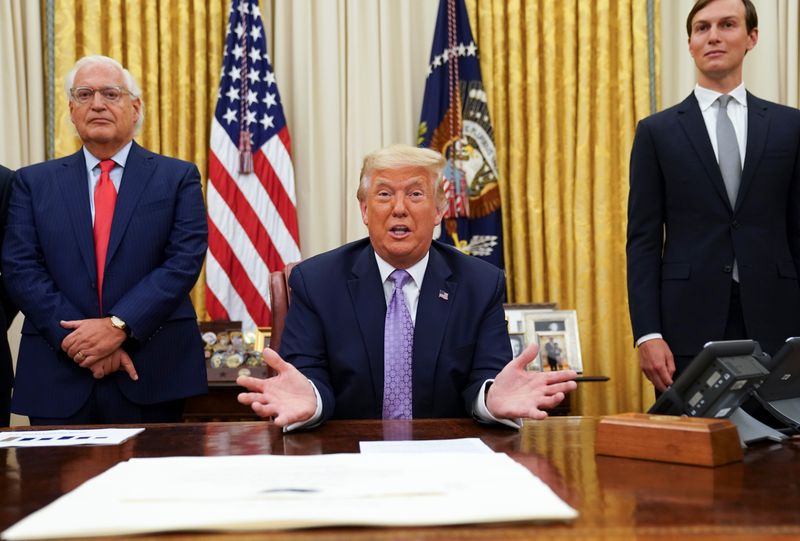By Steve Holland
WASHINGTON (Reuters) - Senior White House officials on Friday sought to use the momentum from a historic deal between Israel and the United Arab Emirates to appeal to more Arab and Muslim countries to set aside long-standing tensions and make similar agreements.
A senior White House official said President Donald Trump's senior adviser, Jared Kushner, and Middle East envoy, Avi Berkowitz, had been in touch with "numerous" countries in the region, trying to see if more agreements would materialize. The official declined to name the countries.
On Thursday, Israel and the United Arab Emirates announced they would normalize diplomatic ties and forge a broad new relationship, a move that reshapes the order of Middle East politics. Trump helped broker the accord.
Speaking at a news conference, Trump predicted that other countries would be signing similar accords with Israel.
"What you will see now is other countries will come into that deal and you will have peace in the Middle East," he said.
Speculation has centered around two Gulf nations, Bahrain and Oman, both of which welcomed the deal. Sudan was also a subject of speculation.
Bahrain hosted a U.S.-led Middle East conference a year ago, aimed at raising money for the Palestinians and Jordan as part of Trump's Middle East peace initiative.
"There are numerous countries that we have been in contact with literally in the last 24 hours," said the official. "We have been in contact with officials from numerous countries, Arab and Muslim, in the Middle East and Africa."
The Israel-UAE deal was viewed widely as a foreign policy victory for Trump as he struggles to contain the coronavirus pandemic in the United States and resulting economic recession while facing a tough battle for re-election on Nov. 3.
Trump said on Thursday he expected to have a signing ceremony for the deal in about three weeks, with delegations from each country.
Kushner and Berkowitz are making the case to other countries that improved ties with Israel could have economic benefits and help counter Iranian influence in the region.
"If you're an Arab or Muslim country and you see the positive reception the world gave this agreement, it would be natural to see this as a really historic time and opportunity and we are optimistic ongoing negotiations will prove fruitful," the official said.
